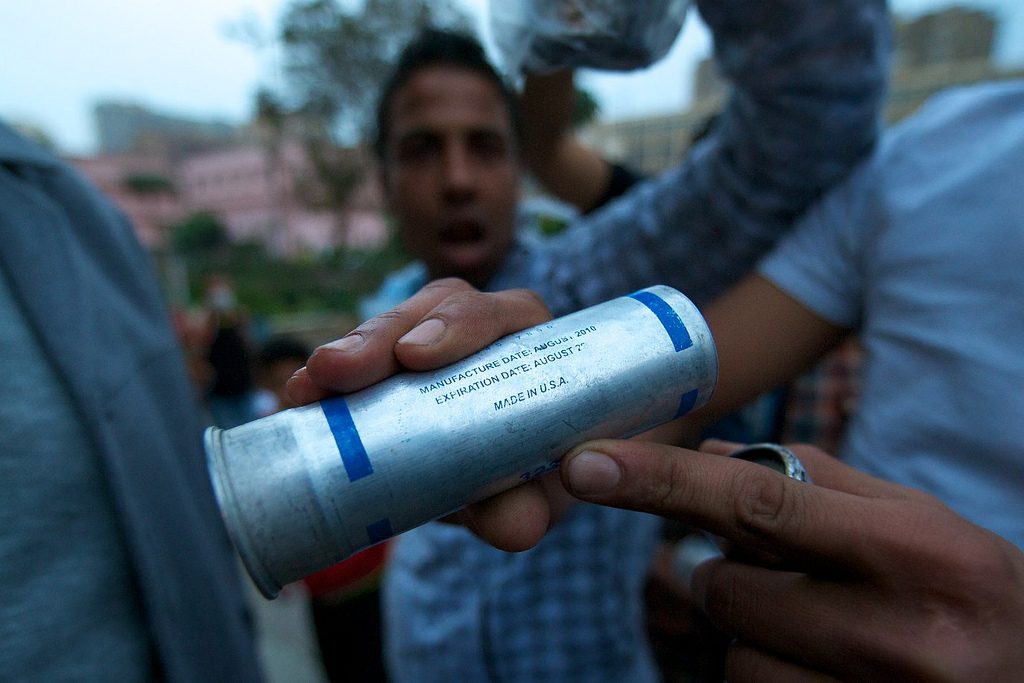
The U.S. Congress is seeking to impose restrictions on military aid to Egypt in the 2012 omnibus spending bill unveiled on December 16, news that may not be welcomed by the Supreme Council of the Armed Forces (SCAF), which would prefer that its $1.3 billion dollar assistance package continue to flow freely without strings attached. In late September, Egyptian Foreign Minister Mohammed Kamel Amr expressed alarm over congressional proposals to link military aid to the military’s respect for human rights and progress on the democratic transition. During meetings with top U.S. officials in Washington, Amr urged the administration to oppose the legislation, warning that “such conditions and language would be detrimental to future cooperation.” But the military’s latest crackdown on peaceful protesters – in which soldiers perched on rooftops threw rocks, furniture and glass into a crowd of unarmed civilians to disperse the “Occupy Cabinet” sit-in outside the Council of Ministers building on December 16 – should be a wake-up call to policy-makers. Faced with the Egyptian military’s increasingly brutal and blatant misuse of weapons paid for with U.S. tax dollars, the United States has a humanitarian obligation to restructure its military aid in ways that support, rather than undermine, the democratic transition.
The Senate has reportedly agreed to provisions in the House version of the State and Foreign Operations Appropriations Bill for fiscal year 2012, which would make the allocation of Egypt’s $1.3 billion dollar military aid package contingent on a transfer of power to civilian leadership. Under the terms of the legislation, none of the military aid earmarked for Egypt can be allocated until the Secretary of State has certified that its government is "supporting the transition to civilian government including holding free and fair elections; implementing policies to protect freedom of expression, association and religion; and due process of law" in addition to upholding the 1979 peace treaty with Israel (see pages 1092-93 of HR3671).
The legislation also includes harsh language referring to the misuse of American-manufactured tear gas against protesters in Egypt and other countries experiencing unrest. Under terms laid out in the foreign operations portion of the spending bill, the State Department will be required to submit reports within 90 days "detailing any crowd control items, including tear gas, made available with appropriated funds or through export licenses to foreign security forces that the Secretary of State has credible information have repeatedly used excessive force to repress peaceful, lawful, and organized dissent." Thus far, the State Department has resisted pressure to disclose the details of tear gas sales to Egypt, and Amnesty International discovered that the U.S. continued to approve shipments of tear gas and other munitions despite escalating clashes between military personnel and peaceful protesters in Cairo. One shipment arrived at an Egyptian port just a few days before the government’s violent crackdown on an anti-military protest in Tahrir Square on November 18.
The omnibus bill still needs to be formally voted on and signed by the president before it takes effect. Although the provisions in the foreign operations section supposedly reflect completed negotiations with ranking Senate members — The House was expected to pass the measure on December 16 and the Senate within days — the Obama administration has expressed opposition to restrictions on military aid to Egypt and other allies, over concerns that conditionality would erode its leverage with the military leadership. According to the White House communications director, Dan Pfeiffer, “The president continues to have significant concerns about a number of provisions,” including conditions on military aid that “threaten the foreign policy prerogatives of the president.”
When an early draft of the legislation was floated in July, Secretary of State Hillary Clinton sent a letter to the chair of the House Foreign Affairs Committee, Congresswoman Ileana Ros-Lehtinen (R-FL) warning that she would advise President Barack Obama to veto any bill containing new conditions on US assistance to its allies. In the letter, Clinton cautioned that aid restrictions “would be debilitating to my efforts to carry out a considered foreign policy and diplomacy, and to use foreign assistance strategically to that end.”
Although the new restrictions will be a bitter pill for the SCAF to swallow, conditioning military aid to Egypt won’t jeopardize the bilateral relationship over the long-run, as Clinton fears. If the U.S. hopes to be perceived as a legitimate and credible partner for the post-revolutionary Egypt, it will need to rethink and restructure its support for a military establishment that is undeniably obstructing the democratic transition.
Mara Revkin is the assistant director of the Rafik Hariri Center for the Middle East and editor of EgyptSource. She can be reached at mrevkin@acus.org.
Photo Credit: Charles Onians
Image: egypt-revolution6.jpg

